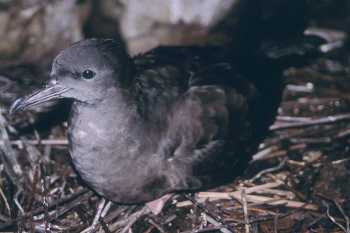Krista Verlis (Centre for Environmental Management, Central Queensland University, Gladstone, Australia) and colleagues, writing in the Marine Pollution Bulletin report on plastic ingestion by Wedge-tailed Shearwaters Puffinus pacificus in Australian waters.
The paper’s abstract follows:
”We present the first evidence of ingestion of plastic by seabirds from the southern Great Barrier Reef (GBR), Australia. The occurrence of marine debris ingestion in the wedge-tailed shearwater, Ardenna pacifica, on Heron Island was the focus of this preliminary research. Our findings indicate that 21% of surveyed chicks are fed plastic fragments by their parents, having ingested 3.2 fragments on average. The most common colours of ingested plastic fragments were off/white (37.5%) and green (31.3%). Ingested fragments had a mean size of 10.17 ± 4.55 mm and a mean weight of 0.056 ± 0.051 g. Our results indicate that further research is critical to understanding the extent of ingestion, colour preferences, and what impacts ingestion may have on these and other seabird populations in the GBR.”

Wedge-tailed Shearwater. Photograph by Alan Burger
Reference:
Verlis, K.M., Campbell, M.L. & Wilson, S.P. 2013. Ingestion of marine debris plastic by the wedge-tailed shearwater Ardenna pacifica in the Great Barrier Reef, Australia. Marine Pollution Bulletin doi.org/10.1016/j.marpolbul.2013.03.017.
John Cooper, ACAP Information Officer, 10 June 2013

 English
English  Français
Français  Español
Español